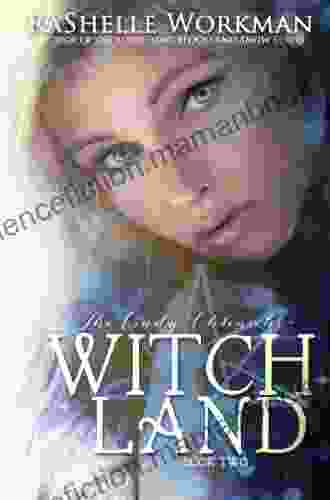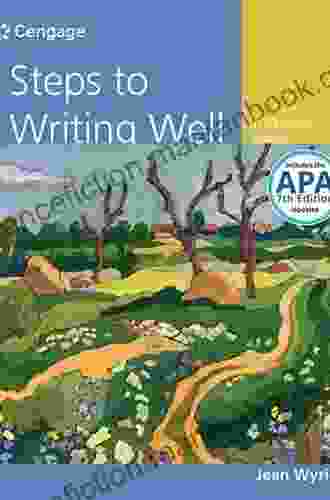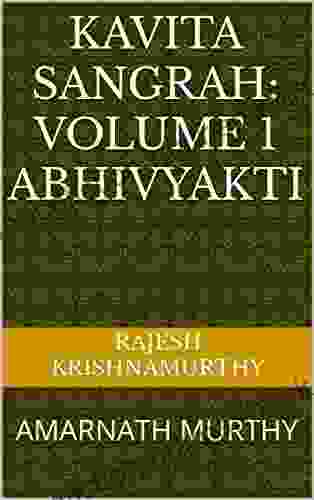For a Cruelty-Free, Ethical, and Sustainable World

In today's modern, interconnected world, our actions have far-reaching consequences. The choices we make as consumers can profoundly impact the well-being of both humans and animals, as well as the health of our planet. In recent years, there has been a growing awareness of the interconnectedness of these issues, giving rise to the concept of ethical, sustainable, and cruelty-free living.
The Cruelty-Free Ethos
Cruelty-free practices encompass a wide range of ethical considerations that prioritize the well-being of animals. This philosophy extends beyond opposition to animal testing and includes the rejection of any products or practices that inflict unnecessary pain or suffering on animals. By adopting cruelty-free principles, we can contribute to a world where animals are treated with respect and compassion.
5 out of 5
| Language | : | English |
| File size | : | 786 KB |
| Text-to-Speech | : | Enabled |
| Screen Reader | : | Supported |
| Enhanced typesetting | : | Enabled |
| Word Wise | : | Enabled |
| Print length | : | 54 pages |
| Lending | : | Enabled |
Animal Testing
Animal testing has been a controversial practice for decades, with growing scientific evidence and public pressure calling for its abolition. Animals subjected to testing often endure immense pain and distress, and the results obtained from animal studies can often be misleading or inaccurate when applied to humans. Humane, non-animal alternatives to animal testing are available and are becoming increasingly adopted by responsible scientists and companies.
Fur, Leather, and Animal Products
The fur, leather, and animal product industries have long been criticized for their inherent cruelty and environmental impact. Animals raised for these industries are often subjected to inhumane living conditions, including overcrowding, forced confinement, and painful methods of killing. By choosing alternatives made from plant-based or recycled materials, we can reduce demand for animal products and support a more compassionate and sustainable world.
Ethical and Sustainable Practices
Ethical and sustainable practices encompass a broader range of considerations, including environmental protection, social justice, and fair trade. When we make ethical and sustainable choices, we not only reduce our own environmental impact but also support businesses and organizations that share our values.
Environmental Protection
The health of our planet is inextricably linked to the well-being of all living creatures. By choosing products that are sustainably produced and eco-friendly, we can help reduce our carbon footprint, conserve natural resources, and protect biodiversity. This includes supporting renewable energy sources, recycling and waste reduction, and responsible consumption practices.
Social Justice
Ethical and sustainable practices also extend to social justice issues. Fair trade practices ensure that producers in developing countries are paid fair wages and work in safe and humane conditions. By supporting fair trade products, we can help lift people out of poverty, improve their quality of life, and promote economic equality.
Responsible Business Practices
Businesses have a significant role to play in promoting cruelty-free, ethical, and sustainable practices. By committing to high standards of animal welfare, environmental protection, and social responsibility, businesses can set a positive example and inspire others to follow suit. Consumers can support businesses that prioritize these values by making informed choices and choosing products that reflect their own ethical beliefs.
The Benefits of Ethical and Sustainable Living
Adopting a cruelty-free, ethical, and sustainable lifestyle offers numerous benefits, both for individuals and society as a whole.
Compassion and Empathy
Living a more ethical and compassionate life fosters empathy and understanding for all living creatures. By choosing to live cruelty-free, we cultivate a deeper connection with animals and recognize their inherent value, dignity, and right to live free from suffering.
Improved Environmental Sustainability
Ethical and sustainable practices can significantly reduce our environmental impact. By choosing products and services that prioritize environmental protection, we can help preserve natural resources, reduce pollution, and mitigate the effects of climate change.
Economic Benefits
Supporting businesses that align with our ethical and sustainable values can drive economic change. Fair trade policies and responsible business practices can empower workers and communities, reduce income inequality, and promote economic justice.
Embracing a cruelty-free, ethical, and sustainable lifestyle is an essential step towards creating a more humane, compassionate, and sustainable world for all. By rejecting animal cruelty, supporting ethical practices, and making informed choices, we can create a future where animals are treated with respect, the environment is protected, and social justice prevails.
Together, we can build a world where compassion, sustainability, and ethical considerations guide our actions, ensuring a better future for both humans and animals.
5 out of 5
| Language | : | English |
| File size | : | 786 KB |
| Text-to-Speech | : | Enabled |
| Screen Reader | : | Supported |
| Enhanced typesetting | : | Enabled |
| Word Wise | : | Enabled |
| Print length | : | 54 pages |
| Lending | : | Enabled |
Do you want to contribute by writing guest posts on this blog?
Please contact us and send us a resume of previous articles that you have written.
 Top Book
Top Book Novel
Novel Fiction
Fiction Nonfiction
Nonfiction Literature
Literature Paperback
Paperback Hardcover
Hardcover E-book
E-book Audiobook
Audiobook Bestseller
Bestseller Classic
Classic Mystery
Mystery Thriller
Thriller Romance
Romance Fantasy
Fantasy Science Fiction
Science Fiction Biography
Biography Memoir
Memoir Autobiography
Autobiography Poetry
Poetry Drama
Drama Historical Fiction
Historical Fiction Self-help
Self-help Young Adult
Young Adult Childrens Books
Childrens Books Graphic Novel
Graphic Novel Anthology
Anthology Series
Series Encyclopedia
Encyclopedia Reference
Reference Guidebook
Guidebook Textbook
Textbook Workbook
Workbook Journal
Journal Diary
Diary Manuscript
Manuscript Folio
Folio Pulp Fiction
Pulp Fiction Short Stories
Short Stories Fairy Tales
Fairy Tales Fables
Fables Mythology
Mythology Philosophy
Philosophy Religion
Religion Spirituality
Spirituality Essays
Essays Critique
Critique Commentary
Commentary Glossary
Glossary Bibliography
Bibliography Index
Index Table of Contents
Table of Contents Preface
Preface Introduction
Introduction Foreword
Foreword Afterword
Afterword Appendices
Appendices Annotations
Annotations Footnotes
Footnotes Epilogue
Epilogue Prologue
Prologue Kate Russell
Kate Russell Ivy Barrett
Ivy Barrett Simon Child
Simon Child Susannah Calloway
Susannah Calloway Shane Templeton
Shane Templeton Margaret Chukwu
Margaret Chukwu Rashelle Workman
Rashelle Workman Sade L Collins
Sade L Collins Chris Wiltz
Chris Wiltz William A Owings
William A Owings Donald Crane
Donald Crane Lone Bendixen Goulani
Lone Bendixen Goulani Troy Anthony Platt
Troy Anthony Platt Michio Kaku
Michio Kaku Angela Stevens
Angela Stevens Chris Thomerson
Chris Thomerson Elisa Bini
Elisa Bini Serena Wolf
Serena Wolf Filip Forsberg
Filip Forsberg Emily Sun
Emily Sun
Light bulbAdvertise smarter! Our strategic ad space ensures maximum exposure. Reserve your spot today!
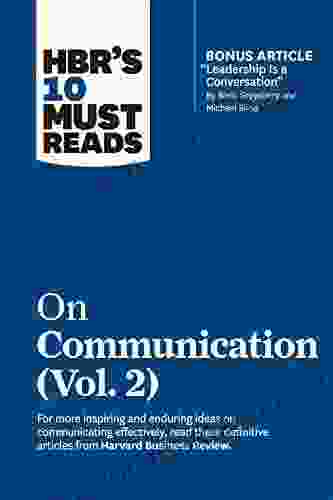
 Marcel ProustHBR's 10 Must Reads on Communication, Vol. 1 with Bonus Article: Leadership...
Marcel ProustHBR's 10 Must Reads on Communication, Vol. 1 with Bonus Article: Leadership... Shane BlairFollow ·10.5k
Shane BlairFollow ·10.5k Davion PowellFollow ·4.3k
Davion PowellFollow ·4.3k Chuck MitchellFollow ·10.8k
Chuck MitchellFollow ·10.8k Gavin MitchellFollow ·10.9k
Gavin MitchellFollow ·10.9k Kirk HayesFollow ·16.3k
Kirk HayesFollow ·16.3k Albert ReedFollow ·14.7k
Albert ReedFollow ·14.7k Clark CampbellFollow ·18.5k
Clark CampbellFollow ·18.5k Rick NelsonFollow ·3.6k
Rick NelsonFollow ·3.6k
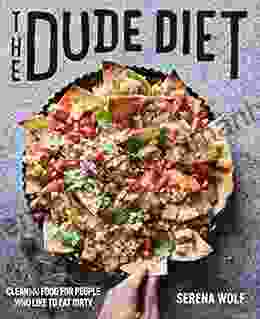
 Ashton Reed
Ashton ReedClean(ish) Food for People Who Like to Eat Dirty
By: [Your Name] Are...
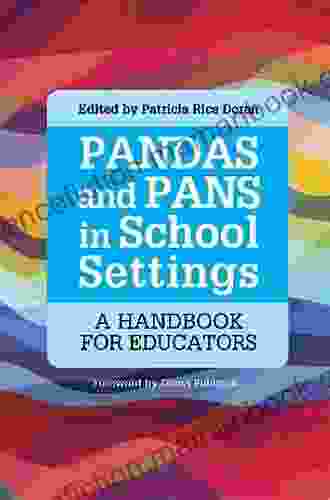
 Ronald Simmons
Ronald SimmonsThe Handbook for Educators: A Comprehensive Guide to...
The Handbook for...

 Derrick Hughes
Derrick HughesAny Place Hang My Hat: A Hauntingly Beautiful Novel by...
A Masterpiece of...

 Adrien Blair
Adrien BlairFly Me to the Moon Vol. 5: A Lunar Odyssey through...
In the vast...

 William Powell
William PowellTips By Gardeners On Variety Of Subjects
Gardening...
5 out of 5
| Language | : | English |
| File size | : | 786 KB |
| Text-to-Speech | : | Enabled |
| Screen Reader | : | Supported |
| Enhanced typesetting | : | Enabled |
| Word Wise | : | Enabled |
| Print length | : | 54 pages |
| Lending | : | Enabled |



